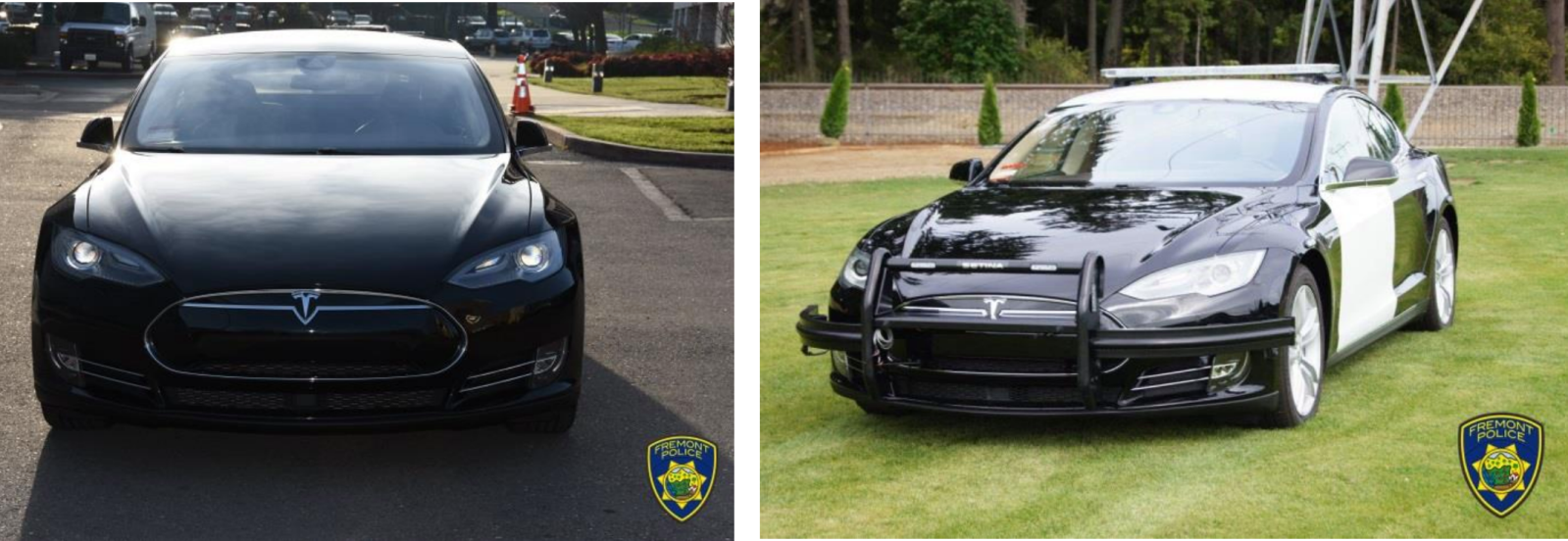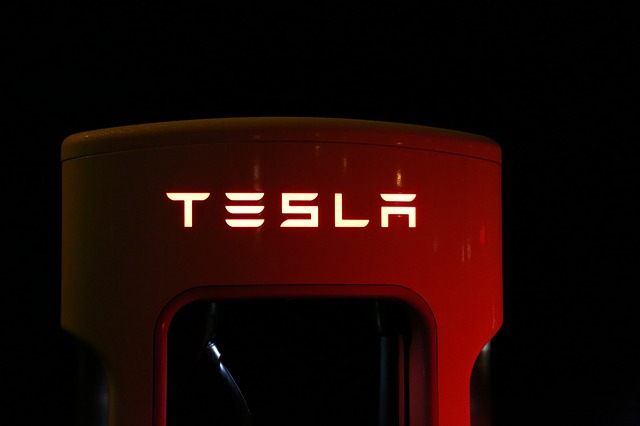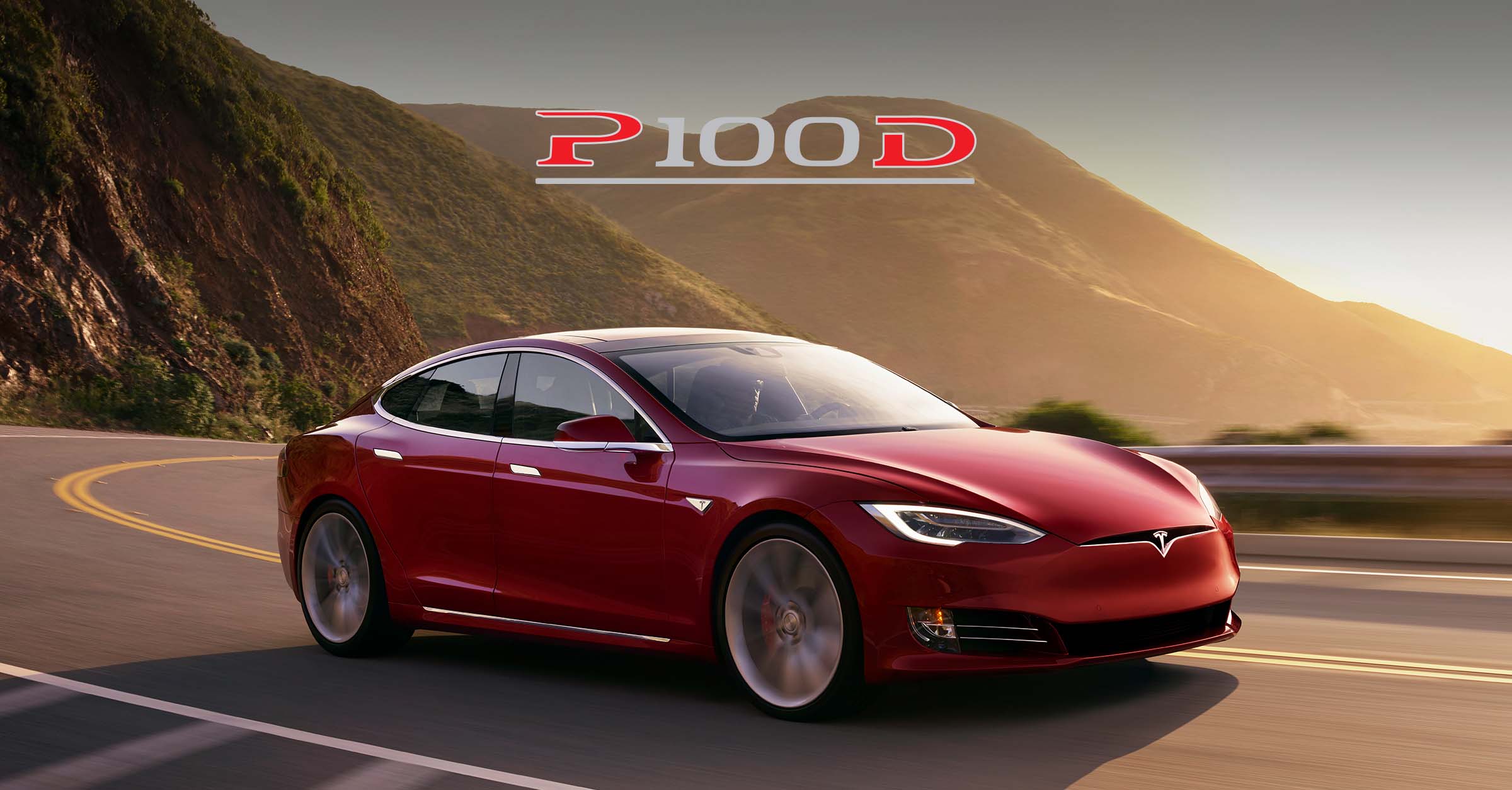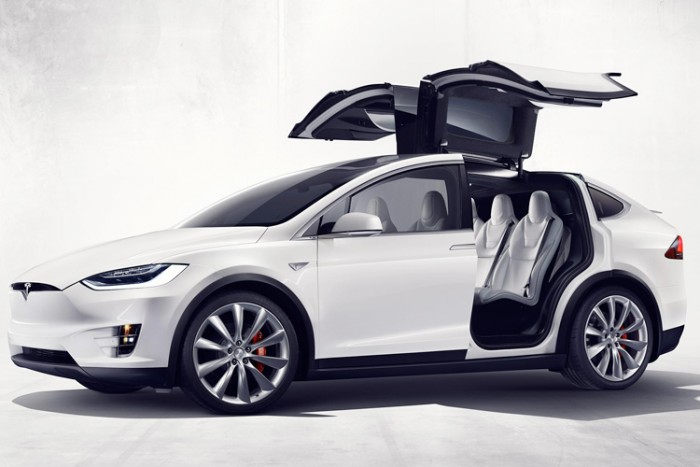Now Reading: Tesla Model S the new star of the Fremont Police Department
-
01
Tesla Model S the new star of the Fremont Police Department
Tesla Model S the new star of the Fremont Police Department

When you think about electric cars, you don’t usually picture power, speed or the ability to participate in a high-speed chase. The Fremont Police Department in California is hoping to change this perception and reduce their carbon footprint by incorporating electric cars into their fleet. Which electric vehicles have the Fremont PD chosen, and why are they trading in their gas guzzlers for electronic alternatives?
- Tesla Model S Police Cruiser
The Tesla Model S is the electric car of choice for the Fremont Police Department, even though it only has a range of 265 miles before it needs a recharge This isn’t quite enough for a full day of police work, but the Model S more than makes up for it in every category that matters. It comes standard with regenerative braking, which helps to charge the battery a little bit each time the brakes activate, and the heavy duty brakes can keep up with anything an average day on the beat can the throw at it.
The Model S also has a much lower center of gravity than other similar models, giving it superior handling capabilities even at high speeds. The placement of the car’s battery pack adds to that, the extra weight serving to keep the vehicle’s tires on the road, regardless of the driving conditions.
- Idle Concerns
One of the biggest concerns about using electric cars in a police force is the amount of time that a patrol car spends idle. Even with the motor off, patrol cars are often required to sit for hours with their emergency lights on to direct traffic which drains the battery and could leave an electric patrol car stranded and in need of a tow.
In spite of these less-than-idle concerns, Fremont PD is still looking to replace their Dodge Challengers with Tesla Model S.
- A Shrinking Carbon Footprint
The goal of adding these electric cars to the department’s rotation isn’t just to give the deputies new toys to play with — though many of them are probably excited about getting behind the wheel of a Model S. The ultimate goal is to prove the feasibility of using electric vehicles as patrol cars, saving the department money and reducing it’s carbon footprint in the long run.
Experts estimate that one Model S could reduce department costs by more than $47,000 a year when compared to a Ford Explorer cruiser. The SUV costs the police department roughly $32,000 a year in fuel and more than $15,000 in regular maintenance costs.
The Tesla Model S isn’t the first electric car to make an appearance in a California police department. The LAPD purchased two of these cars for use in Los Angeles, though it didn’t get as much mileage as you might expect.
Fremont gave itself a goal — to reduce its emissions by 25 percent in the next year. Adding two electric vehicles to its roster is the first step toward reaching that goal.
Pilot programs like those hosted by the LAPD and the Fremont Police Department are the first of their kind, but the current mileage limits of electric cars mean that you won’t see any departments replacing their entire fleet of patrol cars with electric alternatives anytime soon. This is one change that will evolve slowly as the technology begins to advance. Utilizing hypermiling — driving the vehicle at a lower speed to reach peak efficiency — can extend a Model S’s range to nearly 670 miles, but since the peak efficiency speed for this particular model is 24 miles per hour, that isn’t practical for use in police departments. If Tesla releases an affordable electric vehicle that is capable of going a thousand miles or more between charges, we may start seeing more of them in police fleets across the country.
Stay Informed With the Latest & Most Important News
Previous Post
Next Post
-
 01Polestar Boss Says It’s Time To Outrun BMW M And Mercedes-AMG
01Polestar Boss Says It’s Time To Outrun BMW M And Mercedes-AMG -
 02Spy Shots: 2027 Mitsubishi Pajero Spotted in Testing Ahead of Possible U.S. Return
02Spy Shots: 2027 Mitsubishi Pajero Spotted in Testing Ahead of Possible U.S. Return -
 032026 Toyota Hilux EV: A Powerful Truck with Silent Torque
032026 Toyota Hilux EV: A Powerful Truck with Silent Torque -
![2027 Mercedes-Benz S-Class Debuts with V8 Engine [Photo Gallery]](https://speedlux.com/wp-content/uploads/2026/01/2027-Mercedes-Benz-S-Class-33-155x125.jpg) 042027 Mercedes-Benz S-Class Debuts with V8 Engine [Photo Gallery]
042027 Mercedes-Benz S-Class Debuts with V8 Engine [Photo Gallery] -
 052026 Corvette ZR1 Production Surges Past Expectations as Output Clears 1,000 Units
052026 Corvette ZR1 Production Surges Past Expectations as Output Clears 1,000 Units -
 06Spy Photos: VW ID. Polo GTI Goes Electric with 223 HP and 280 Miles of Range
06Spy Photos: VW ID. Polo GTI Goes Electric with 223 HP and 280 Miles of Range -
 07The Controversial Ford Voodoo V8 That Was Killed Off Too Early
07The Controversial Ford Voodoo V8 That Was Killed Off Too Early



![2027 Mercedes-Benz S-Class Debuts with V8 Engine [Photo Gallery]](https://speedlux.com/wp-content/uploads/2026/01/2027-Mercedes-Benz-S-Class-33-700x394.jpg)











































